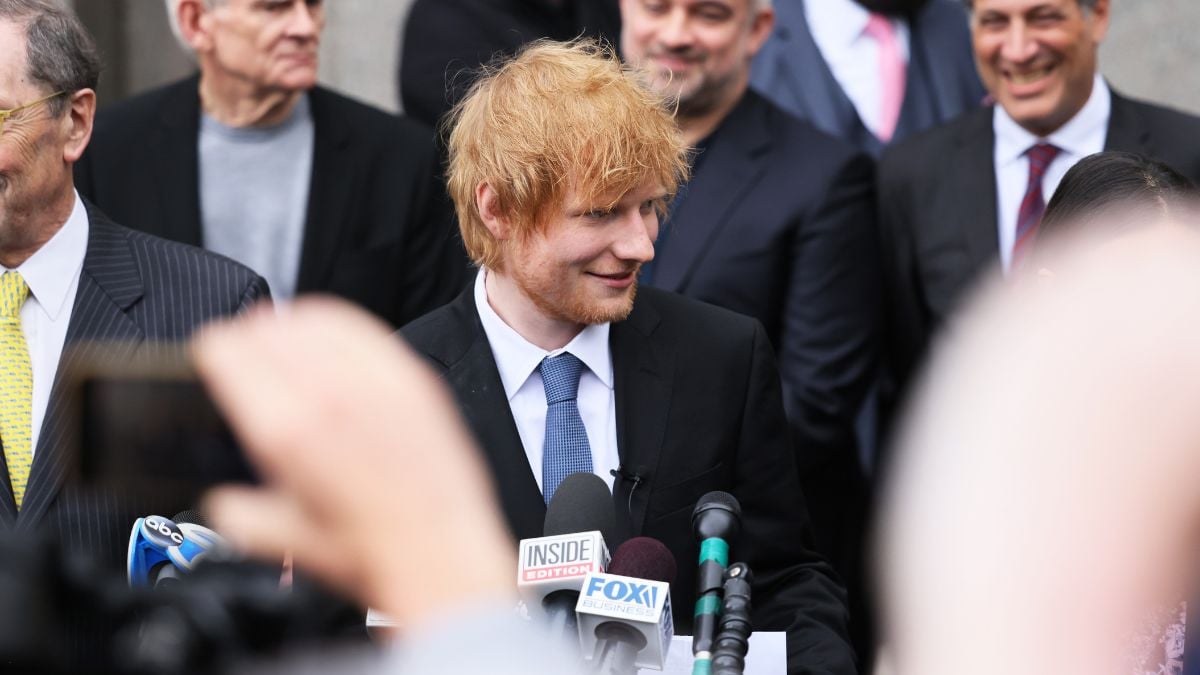Singer/songwriter Ed Sheeran faced court recently due to accusations of plagiarism. Sheeran was accused of plagiarizing musical elements from Marvin Gaye’s “Let’s Get It On” for his hit 2014 song, “Thinking Out Loud,” claiming that the “melody and rhythmic patterns” of the two songs were similar. The lawsuit was filed by the children of Gaye’s co-writer, Ed Townsend, in 2017, who demanded a hefty sum.
This lawsuit shocked the music industry, with reports from NME stating that Sheeran would quit his music career if found guilty. The singer also missed out on his grandmother’s funeral due to the lawsuit. On May 4, 2023, the jury announced their verdict on the copyright infringement case. So what happens now to Sheeran and his music career? Was the singer really infringing on someone else’s copyright?
What was the verdict in Ed Sheeran’s copyright lawsuit?
The entire music and entertainment industry watched as Sheeran and his legal team defended his innocence in New York City. According to the British songwriter, he argued that the chords in question were the “basic musical building blocks” and could be found in other songs. He also claimed that he was inspired by Irish musician, Van Morrison.
After days of defending himself, which involved playing him playing parts of the song on his guitar, according to the BBC, the Manhattan jury ruled in favor of Sheeran after three hours of careful deliberation. It was also reported that Sheeran hugged his legal team after the jurors gave their verdict.
Sheeran’s lawyer, Ilene Farkas, said during the case’s closing statements that Sheeran was “falsely accused” and that the song was “born from an emotional conversation” and “it was their original creation.” Before the jury gave their verdict, she claimed “creativity will be stifled for fear of being sued” if Sheeran was found guilty of plagiarism.
This was the second time that Sheeran has been successful in court defending his music. Back in June 2022, the singer was awarded $1.1 million in legal fees over a plagiarism suit over “Shape of You,” due to the repetition of “oh, I” and the argument that it was copied from Sami Chokri’s “Oh Why.”

